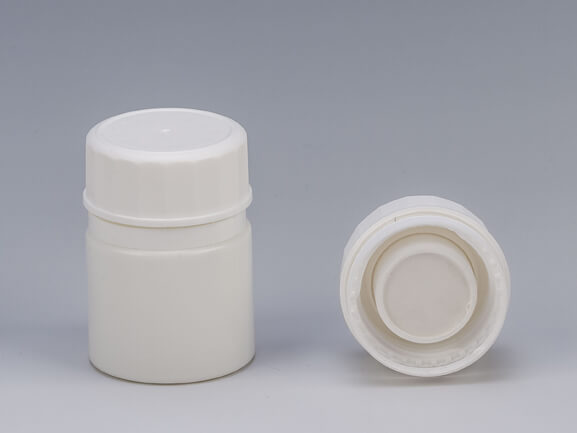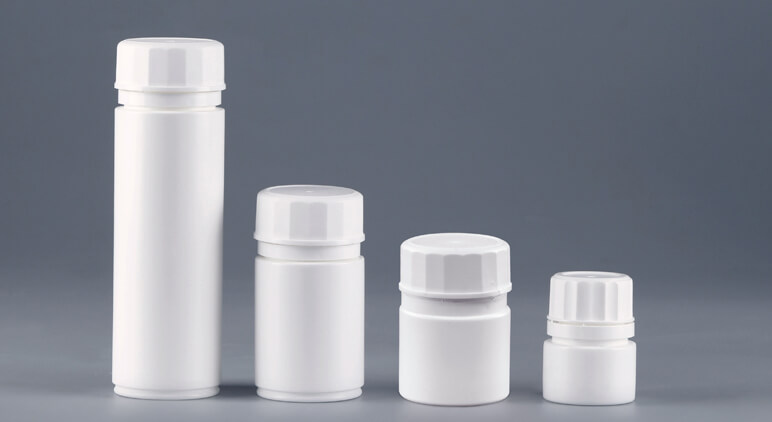In today's highly regulated industries-especially pharmaceuticals, nutraceuticals, and diagnostics—product stability is non-negotiable. Moisture control plays a critical role in maintaining efficacy, shelf life, and safety. Enter the HDPE or PP bottle with a desiccant cap—a robust, integrated solution that combines protective plastic materials with built-in moisture management.
50ml desiccant bottle with CRC
What Are HDPE and PP Bottles with Desiccant Caps?
These bottles are made from High-Density Polyethylene (HDPE) or Polypropylene (PP)—two of the most widely used plastics in pharmaceutical and medical-grade packaging. Each bottle features a desiccant-integrated cap, which actively absorbs moisture from the bottle interior, protecting its contents without the need for loose desiccant sachets or canisters.
desiccant bottle with silica gel
Why Use HDPE or PP?
Both HDPE and PP are FDA-approved for food and pharmaceutical contact, and they offer a balance of durability, chemical resistance, and cost-effectiveness:
HDPE (High-Density Polyethylene)
Excellent moisture barrier
High impact resistance
Lightweight and recyclable
Commonly used for tablets, capsules, and powders
PP (Polypropylene)
Higher heat resistance than HDPE
Chemically inert and non-reactive
Great for autoclave or steam sterilization
Often used for diagnostic kits or liquid formulations
The Desiccant Cap Advantage
Desiccant caps are engineered with moisture-absorbing materials—like silica gel, molecular sieves, or activated carbon—integrated into the cap's structure. This keeps the desiccant secure and away from the product, while offering consistent protection from humidity.
Key Benefits of Desiccant Cap Bottles:
Integrated Moisture Control: Reduces product degradation due to humidity
Safety First: No loose packets, eliminating ingestion risks
Maximum Fill Volume: No internal space taken up by sachets
Streamlined Packaging: Simplifies automated bottling processes
Regulatory-Ready: Compatible with cGMP and FDA packaging standards
Ideal Applications
Pharmaceuticals: Tablets, capsules, probiotics, and powder-based meds
Nutraceuticals: Herbal blends, vitamins, and dietary supplements
Diagnostics: Glucose strips, test kits, and reagent cartridges
Industrial Uses: Sensitive materials like adhesives, catalysts, and electronics


没有评论:
发表评论